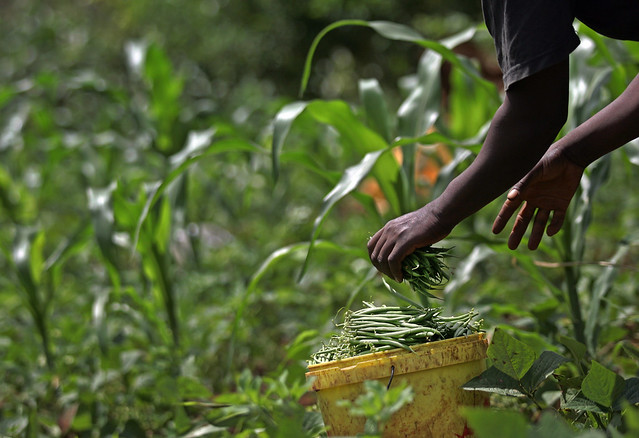25th April 2013 Montreal, Canada
Science and the Food Paradox
Each April 7, the world celebrates World Health Day to commemorate the anniversary of the founding of the World Health Organization (WHO) in 1948.
When thinking about your health, I am certain that access to – healthy – food pops up immediately in your mind.
Indeed, food is a major contributor to a healthy well-being, with the quality and quantity of food acting as the main drivers to such status. Nowadays, the world is facing a major food paradox: while more than one billion people are undernourished and even starving in some parts of the world, another 1.5 billion people are overweight.
It means that more than one third of the world’s population is going to bed every night suffering from lack of health caused by food disorders.

Food-related dysfunctionalities are phenomena affecting both rich and poor countries around the world. It is well known that having insufficient food dramatically contributes to an unhealthy condition, which we tend to link with poverty and poorer countries. However, individuals in richer countries, though they don’t starve to death, face similar unhealthy conditions with lack of consistent, adequate nutritious food.
Last September the WHO declared that for the first time in human history, chronic non- communicable diseases – of which one important contributing factor is food disorders – such as diabetes, heart disease and cancer, pose a greater health burden worldwide than infectious diseases like AIDS, malaria and tuberculosis combined.
In addition, during the last several decades, humanity has been facing a major concern of food management. Since the Second World War, food production has increased 8 to 10 % faster than the world population, but why is it that many people still go to bed hungry?
This question has been haunting me for a while and is deeply linked with food insecurity, hunger and overweight worldwide. Last January, UK’s Institution of Mechanical Engineers (IMechE) published the report “Global Food: Waste not, Want not” highlighting that in richer countries, between 30 and 50 % of the food produced every year is never eaten, and subsequently find the trash as its destination (usually attributed to big portion sizes and compulsive consumer patterns).
Additionally, in poor countries, up to 50% of food is also wasted, in this case apparently triggered by the lack of appropriate storage facilities and/or transportation resources. Food waste also causes overuse of other resources that are already in short supply, such as water and energy.
The ultimate message is, then, we indeed have the resources to feed the world’s population, but we need to learn how to better optimize their management. Tackling population nutrition would be critical to today’s world food security and tomorrow’s ecological sustainability.
To date, humanity has failed to attain what Aristotle preached over 2,300 years ago:
“if we believe that men have any personal rights at all as human beings, they have an absolute right to such measure of good health as society, and society alone, is able to give them”.
It’s everyone’s responsibility to minimize wasted food at home (changing consuming patterns) and promoting the best science practices to avoid food losses.